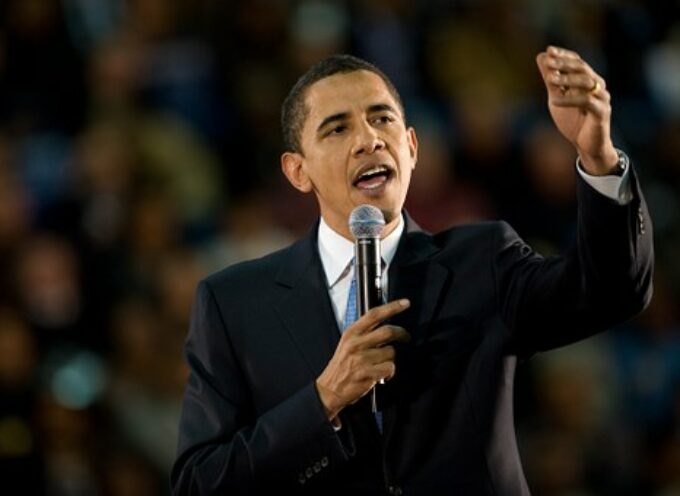It should be unsurprising that economic considerations play a significant role in today’s American populism. Historically, populist movements world-wide have arisen most frequently as a response to economic frustrations.
Consider the “populare” politicians of ancient Rome. As historian Barry Strauss notes, the populares were a series of Roman politicians—such as Tiberius Gracchus, Gaius, Gracchus, Saturninus, and Sulpicius—who claimed to be acting in the best economic interests of the people at a time when Roman elites ruled in an increasingly tone-deaf and self-interested manner. Political opponents of the populares dismissed them as rabble-rousers and unprincipled panderers who appealed to emotion and prejudice rather than to reason and the common good. Both the concerns of the populares and the attacks of their opponents should sound familiar. Truly there is nothing new under the sun.
Similar to ancient Roman populism, America’s populism is fueled by economic frustration. To be clear, economic frustration is not found only in populism. Nor can our American populism be reduced to economic concerns. Yet the economic frustration of many everyday Americans, combined with the perception that everyday citizens have no power over these economic trends—trends that ultimately benefit the elite—fuels today’s populism.
As economist Dani Rodrik argues, the particular flavor of populism will differ based on two factors: a community’s cultural context within America and the various economic pressures it experiences. These two factors all but determine the type of ideological pivot that populists will fight for. For instance, on the economic front, when communities undergo pressure from the forces of globalization, then the populist response tends to manifest as Left-wing. Conversely, when communities undergo pressure from economic forces related to immigration, the response tends to be Right-wing. Shift the catalyzing economic context and you will find populism shifting as well.
Economics alone, however, do not determine the shape of populism. The specific variety of populism will take unique shape depending on the way economic concerns relate to other concerns such as cultural dislocation or political marginalization. If we are to discern the primary fault line of a particular iteration of populism, we need to assess whether its leaders frame the narrative as primarily economic, ethnic, or cultural—or a mixture of the three.
How should we evaluate economically-driven populism?
On the one hand, populists are right that a law-governed democratic republic should stand watch so that power cannot be purchased by the elite, a danger that the Roman populares proves is ever at hand. Populists are right to assert that rich individuals and corporations should not have a monopoly on social and political power. In a democratic republic such as ours, the voice of the people should have sway. And the people feel voiceless when significant economic (or other) decisions are made without consulting the people via the legislative process.
Populists are also right in their desire to hold powerful people accountable. Many of today’s populists—on the Right and Left—point to the financial crisis of 2008 as an overdue time of reckoning when fiscal imprudence by large corporations finally caught up to them. In biblical terms, it was a moment to anticipate God’s just wrath against the vice of greed. However, the punishing consequences of the 2008 crisis didn’t merely affect the greedy power brokers who caused it. Populists are quick to point out that the ordinary tax payers paid exorbitantly in order to bail out the irresponsible power brokers who were responsible for the crisis. Justice was thwarted, the greedy were exonerated, and the voice of the people was once again muted. In light of situations like these, today’s populism reminds us, helpfully, that powerful persons should not be above the law. They, like the rest of us, must be held accountable for their actions.
Economically-driven populism, however, is not without fault. Troublingly, populists’ perceptions don’t always conform with reality. For example, many of today’s right-wing populists blame globalization for the offshoring of manufacturing jobs. The more jobs are “shipped overseas,” they argue, the greater the benefit to the corporate elite, but the greater the cost to the ordinary workers. And there is some truth to this perception, but on its own, this narrative is both incomplete and misleading.
The problem is probably less related to globalization than it is the development of greater technological efficiency. Machines and technological processes are replacing workers. Further, such efficiency, while representing a loss of the number of jobs, also means lower costs for consumers, which it turn means greater capital which can be reinvested for the creation of more jobs. And while technological advance often makes current jobs obsolete, it also creates new fields and jobs that did not exist even a generation prior. Two hundred years ago, for instance, 72% of American workers were farmers. Today, because of technological advance, that number is 2%—but most of the rest of the 70% have shifted to other work.
I know this is a rather simple generalization of a complicated reality, but that is precisely the point. Pointing to economic shifts should be done with caution and nuance, because economies are seldom zero-sum equations with clearly defined winners and losers. Causes and effects are hard to calculate and even harder to manage.
Exacerbating the situation is that populism tends to seek economic reform through authoritarian rather than democratic means. And if populist movements are successful in this way, their reforms will come at a great price to liberty and to economic growth.
Subscribe
Never miss a post! Have all new posts delivered straight to your inbox.








The forces of global capitalism are now so complex, that I’m hard pressed to believe the “average” “common person” can accurately identify or analyze the forces affecting his/her economic lot in life. We have to decide whether most people make political and economic choices PRIMARILY out of 1) rational self-interest (Adam Smith) or 2) out of poorly informed, slightly considered, and emotionally laden states of being. I’m convinced the latter is true. That being the case, those with the loudest “voices” in society essentially interpret reality for everyone else. We can only hope and pray those individuals are not narcissistic and full of hate, but rather actually prioritize the corporate health of the commonweal over their personal interests. Republics and democracies are the most fragile forms of government. I’m afraid few American citizens realize that today.